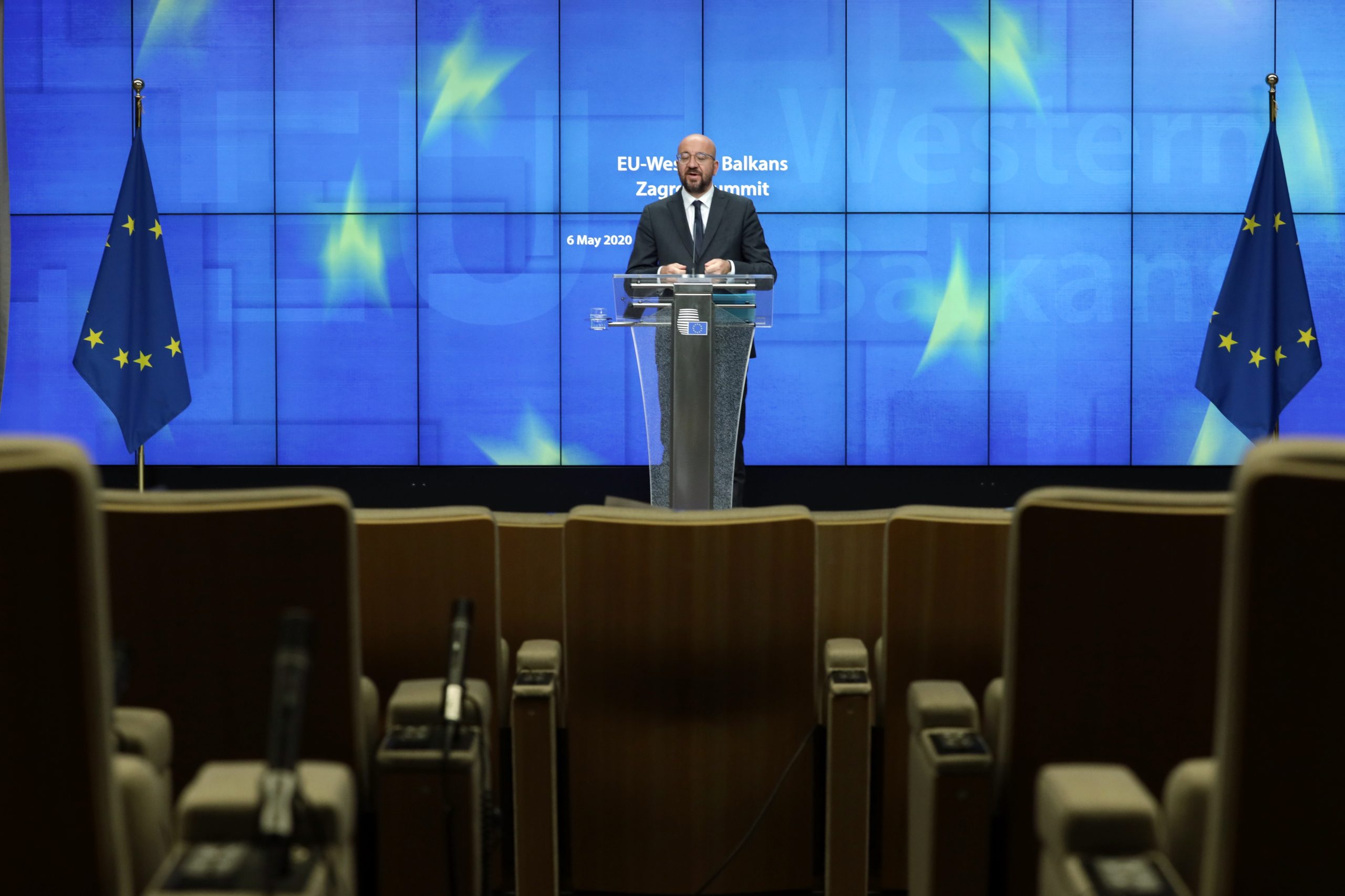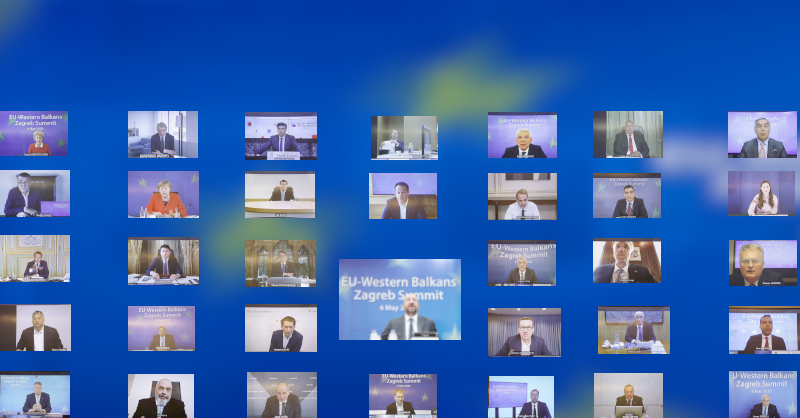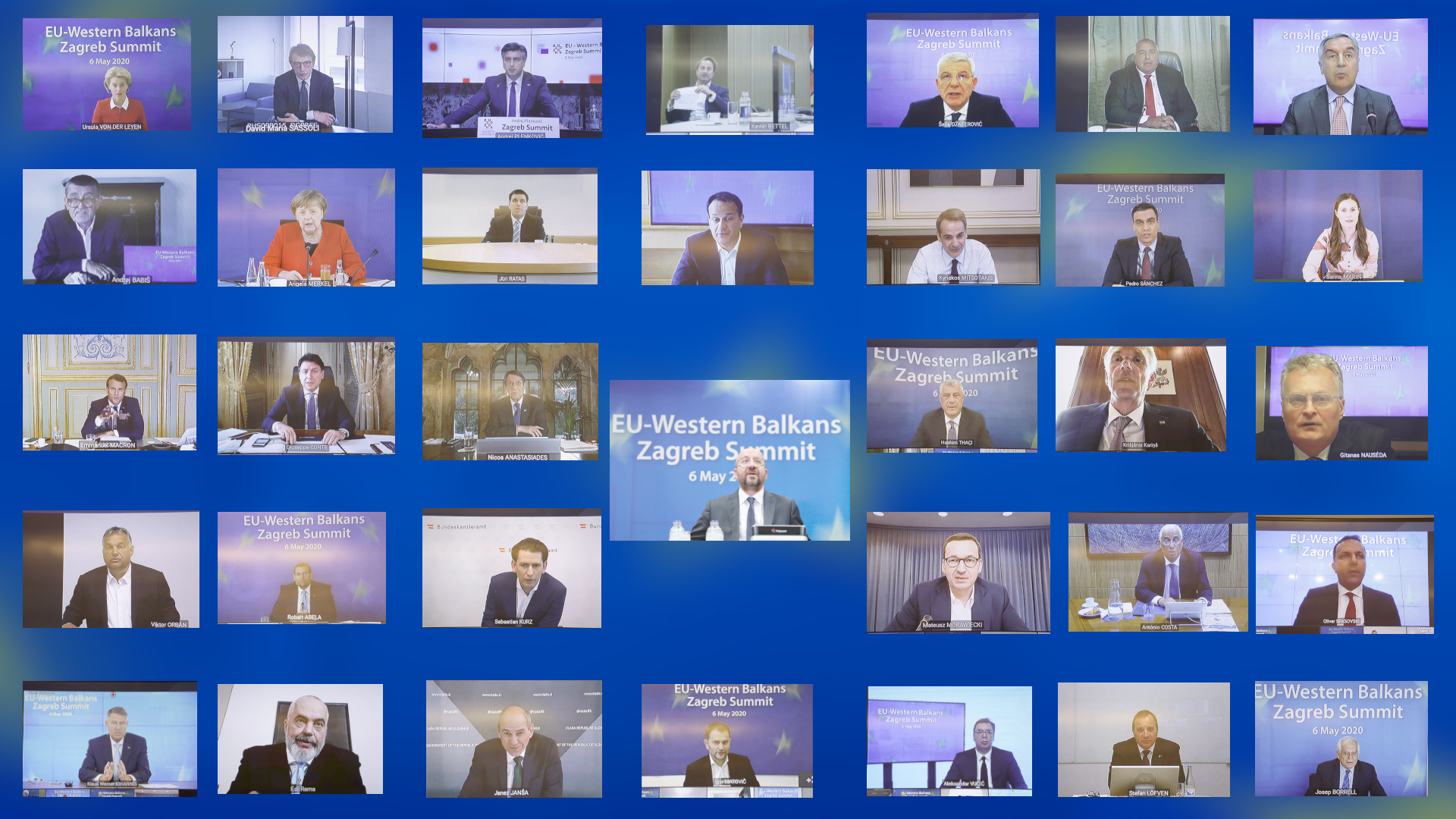The EU-Western Balkans summit took place on 6 May 2020 via video conference due to the COVID-19 pandemic. It brought together:
- heads of state or government from EU member states
- leaders from the six Western Balkans partners: Albania, Bosnia and Herzegovina, Serbia, Montenegro, the Republic of North Macedonia and Kosovo*
The President of the European Council, Charles Michel, chaired the meeting.
The President of the European Commission, Ursula von der Leyen, Andrej Plenković, Prime Minister of Croatia, which currently holds the presidency of the Council, Josep Borrell, the High Representative for Foreign Affairs and Security Policy, David Sassoli, the President of the European Parliament, representatives of the European Bank for Reconstruction and Development, the World Bank, the European investment Bank and the Regional Cooperation Council also participated.

“It was very important, twenty years after the first Zagreb summit, to have this video conference, to have this occasion to tackle very important challenges that we need to face together”, said European Council President Charles Michel
The EU leaders adopted the Zagreb declaration, with which the Western Balkans partners have aligned themselves.
Zagreb Declaration
European perspective
At the summit EU leaders reaffirmed their unequivocal support for the European perspective of the Western Balkans. The EU is determined to strengthen its support to the region’s political, economic, and social transformation.
Western Balkans partners reaffirmed this perspective as their firm strategic choice. They also recommitted to carry out and effectively implement the necessary reforms towards European values and principles and the primacy of the rule of law.
The EU leaders also stressed the importance of good neighbourly relations, regional stability, and mutual cooperation. This includes implementing bilateral agreements in good faith and with tangible results, including the Prespa Agreement with Greece and the Treaty on Good Neighbourly Relations with Bulgaria. It also refers to finding solutions to bilateral disputes and dedicating additional efforts to reconciliation.

COVID-19
The EU and the Western Balkans are together fighting the coronavirus and its effects. The EU actively supports the efforts to combat the coronavirus outbreak and its impact on societies and economies. The Western Balkan partners have given valuable support during the pandemic by the EU.
Socio-economic recovery
The leaders exchanged views on the new phase of close cooperation to tackle the significant socio-economic impact of the COVID-19 crisis.
As a next step, the European Commission is invited to come forward with a robust economic and investment plan for the region aiming to boost the economies while improving their competitiveness, to better connect them within the region and with the EU.
As a result Western Balkans should be able:
- to fully link to the EU’s single market,
- to create jobs and entrepreneurial opportunities
- to improve the business and investment climate
- to promote the Green Agenda for the Western Balkans
- to strengthen the digital economy and connectivity
* This designation is without prejudice to positions on status, and is in line with UNSCR 1244/1999 and the ICJ opinion on the Kosovo declaration of independence.



